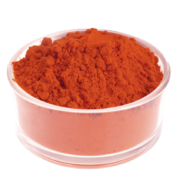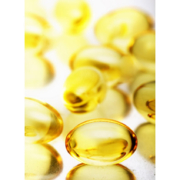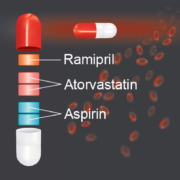Should You Try Prescription Fish Oil?
The final marketing point that the prescription fish oil supplement makes is that the DHA omega-3 fatty acid found in many heart healthy fish oil blends may raise LDL-cholesterol. That’s the cholesterol, known as the lousy cholesterol, associated with an increased risk of cardiovascular disease.
Based on the studies I read, there may be a small increase in LDL-cholesterol in some studies. What they fail to mention is that there’s more than one type of LDL-cholesterol. The small, dense LDL cholesterol has been shown to be associated in CVD even when LDL-cholesterol is in the normal range; the large and fluffy LDL-cholesterol seems to have no relationship with CVD. The supplement fish oils that contain DHA seem to raise only the large LDL-cholesterol. That has led other researchers to call the effect of fish oil on LDL to be cardioprotective at best and benign at worst.
The Issues with the Marketing of Rx Fish Oil
Every company wants to put their best foot forward and prescription fish oil is no different. In reviewing the marketing materials as well as the research, here are my concerns:
- The results of the studies they cite show a decrease in triglycerides of 33%. The mean level of triglycerides in one of the studies was about 660 mg/dl. That means it dropped the mean level to 440 mg/dl. While statistically significant, there’s no way to know whether that’s clinically significant in reducing the overall risk of CVD because the studies were so short.
- The company clearly states that this medication is clinically relevant only to people with triglycerides greater 500 mg/dl; that’s a very small percentage of patients who may have familial high cholesterol. For the typical person with high triglycerides, this medication is not appropriate. That doesn’t mean it’s illegal to prescribe it for people with triglycerides between 250 and 500, but there’s also no evidence that it’s better than a change in diet or exercise. Will it be prescribed only for people with high triglycerides? We’ll see.
- The company did not run comparative studies against fish oil supplements or with diet and exercise alone. Seems like that would be obvious.
- Finally, while there are programs to get this medication for lower prices, I checked with my prescription plan and the cost would be $375 per month. For that kind of money, you can have someone prepare healthy meals specifically designed to reduce your triglycerides or take a class to learn to prepare them yourself; you could definitely join and inexpensive gym and buy more fresh fruits and vegetables.
The Bottom Line
Similar to statin medications when they were introduced decades ago, prescription fish oil should be limited to a very specific part of the population with familial high triglycerides. That’s all—no one else.
As for fish oil supplements, the issues they point out in their marketing material are not significant. You never use dietary supplements to treat any disease, but that doesn’t mean they can’t help you compensate for nutritional deficiencies. There will be a difference in the quality of any supplement so make sure you choose a quality manufacturer.
For the bulk of the population to reduce their triglycerides, reducing refined carbohydrates, saturated fats, and alcohol, increasing vegetable and fruit intake, and getting some exercise will help most. Like I always say: Eat better. Eat less. Move more.
What are you prepared to do today?
Dr. Chet
References:
1. http://dx.doi.org/10.1016/j.atherosclerosis.2016.08.005.
2. J Clin Endocrinol Metab. 2018 Aug 1;103(8):2909-2917.
3. Am J Clin Nutr. 2004 Apr;79(4):558-63.









